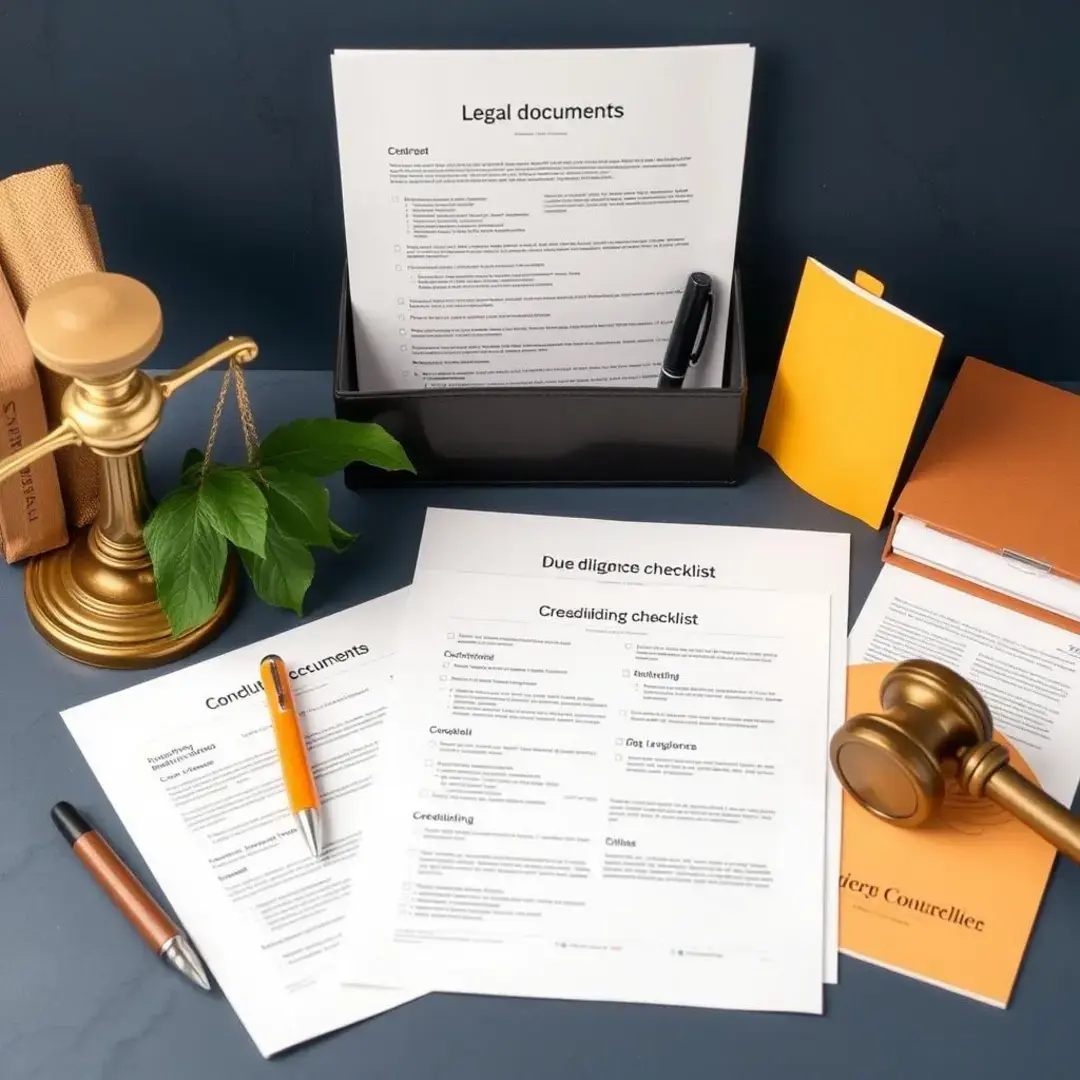Structuring legal Crowdfunding Campaigns
Understanding the legal framework for crowdfunding

Securities regulations and crowdfunding
The Jumpstart Our Business Startups (JOBS) Act was a game changer for the crowdfunding landscape. This legislation facilitates access to capital for small businesses while at the same time protecting individual investors. Under this act, startups can raise funds from a large number of investors, including those who are not accredited, which expands the potential for raising capital significantly.
Ensuring compliance with the Securities and Exchange Commission (SEC) regulations is paramount when structuring a crowdfunding campaign. Startups must provide clear and comprehensive disclosures to safeguard investor interests and abide by securities laws. Failure to comply can lead to serious legal ramifications, including fines and a loss of credibility.
In addition to federal laws, startups must also navigate state-level regulations, which can vary significantly. Some states might impose additional registration requirements, while others could have distinct rules regarding the solicitation of investments. Understanding the legal landscape in each state is crucial to prevent compliance issues down the line.
Choosing the right crowdfunding structure
Equity crowdfunding allows businesses to raise money by offering shares of the company in exchange for investment. This method not only secures capital but also incentivizes investors to contribute as they anticipate a return on their investment. However, it also comes with its share of legal responsibilities and reporting requirements.
With debt crowdfunding, companies borrow funds from investors and commit to pay back the principal with interest. This approach can be beneficial for startups that wish to retain full ownership while securing necessary funding. Properly structuring the terms of repayment is essential to fostering goodwill with investors and maintaining a strong business reputation.
Reward-based crowdfunding allows investors to receive non-financial rewards for their contributions, such as products, services, or exclusive perks. This method is particularly effective for creative projects or product launches. However, it’s critical to clarify what rewards are being offered and ensure they are delivered as promised to sustain credibility.
Often used by non-profit organizations and social enterprises, donation-based crowdfunding raises funds without the expectation of a return. Supporters contribute out of goodwill or to support a cause, making this model unique. While it simplifies many legal complexities, transparency and accountability remain key to maintaining trust and securing future donations.
Structuring your crowdfunding offer

Defining your target audience
Identifying whether you’re targeting accredited or non-accredited investors can drastically affect your crowdfunding strategy. Accredited investors have higher income or net worth, resulting in different risk profiles and investment motivations. Meanwhile, non-accredited investors are often more driven by personal interest and emotional connection to the project, which can influence your marketing strategies significantly.
Each investor has distinct motivations that can influence their decision to engage with your campaign. Some investors seek financial returns, while others may be interested in supporting innovative solutions or contributing to societal change. Understanding these motivations will help tailor your messaging to resonate with potential supporters, ensuring a more effective campaign.
Crafting a compelling investment narrative
Your value proposition is the heartbeat of your crowdfunding campaign. It should communicate precisely why your business is unique and how it provides solutions to current market challenges. A clear and compelling value proposition engages potential investors by offering them a reason to believe in your mission and support your initiative.
Investors are more likely to support campaigns that exhibit clear market traction and potential for growth. Presenting data and real-world examples that highlight product demand or customer feedback can build confidence among investors. Transparency regarding market strategies and customer acquisition plans can further enhance investor interest.
A well-defined exit strategy shows investors how they might realize a return on their investment. This might include a potential acquisition or plans for an IPO. By demonstrating foresight and planning, you instill confidence in your campaign and make it more compelling to invest in.
Setting realistic funding goals and timelines
It’s essential to establish a minimum viable investment that aligns with your funding goals and operational needs. This figure should not only cover your immediate financial obligations but also reflect growth plans for scalability. By being realistic about financial needs, you can create a strategy that appeals to investors while maintaining business integrity.
The duration of your crowdfunding campaign plays a significant role in its success. A timeframe that is too short may rush potential investors, while an excessively lengthy campaign could lead to decreased interest. Balancing urgency with opportunity can enhance engagement and motivate investors to take action quickly.
Legal documentation and due diligence

Preparing a comprehensive offering memorandum
An offering memorandum is a formal document that outlines critical information about your offering. This includes business descriptions, financial forecasts, and risk factors. Providing comprehensive details minimizes miscommunication and positions your campaign as trustworthy, improving investor confidence and participation.
Every investment carries inherent risks, and it’s essential to address these within your offering documents. Being transparent about potential challenges creates an environment of trust. By disclosing risks candidly, you’re also protecting your company from potential legal repercussions that may arise from investor claims.
Conducting thorough due diligence
Sound financial projections are vital for any crowdfunding campaign, as they showcase your business’s growth potential and financial health. A clear presentation of your current financial status and future revenue expectations helps investors make informed decisions while minimizing risks associated with investment.
Conducting comprehensive compliance checks is vital for protecting your startup and maintaining legal standing. This process includes reviewing all applicable laws and ensuring that your campaign meets SEC policies and state regulations. Proper due diligence demonstrates a commitment to legal integrity and investor safety, which can ultimately lead to a successful campaign.
Working with legal counsel
Working with a seasoned securities attorney can provide invaluable insights into the complexities of crowdfunding legality. They can help guide your campaign structure, ensuring that all disclosures, regulations, and compliance measures are met. Their expertise can alleviate potential legal burdens as your campaign progresses.
Negotiating clear and fair terms is critical in engaging potential investors effectively. Your legal counsel can navigate this process, ensuring terms are structured in a way that is attractive to both your startup and its investors. Clear agreements help prevent misunderstandings and potential legal disputes in the future.
Marketing and promoting your crowdfunding campaign

Developing a targeted marketing strategy
Creating a robust marketing strategy is crucial for reaching your target audience effectively. This involves identifying the channels that will yield the best results, whether through social media, e-mail campaigns, or community events. Tailoring your approach based on where your potential investors are most active can significantly enhance your campaign’s visibility.
A strong social media presence is essential for engaging with potential investors and fostering community. Regular updates, valuable content, and interactive posts will keep your audience informed and invested in your journey. Utilizing various platforms can also broaden your outreach and attract diverse investor profiles.
Creating engaging content
Visual content significantly enhances engagement levels among investors and can be more impactful than text alone. Professional videos that encapsulate your business’s vision or product demonstrations are compelling tools for drawing interest. Additionally, high-quality images can aid in storytelling and showcase the product’s potential, making your campaign more appealing.
Weaving a narrative around your brand that resonates with your audience can create a powerful emotional connection. Storytelling engages potential investors on a deeper level, as it allows them to envision their experience with your product or service. Effective narratives not only convey information but also inspire action and foster a sense of community.
Managing investor relations
Communication is key to maintaining investor interest and support throughout your crowdfunding journey. Regular updates via newsletters, social media, and project milestones keep investors informed and engaged. Transparency in communication fosters trust, which is essential for any successful funding effort.
Establishing trust is fundamental for any investor relationship. Be honest about your goals, challenges, and progress to cultivate a sense of loyalty among your backers. Transparency during the campaign helps reinforce credibility and can lead to more extensive support from investors and their networks.
Post-campaign considerations

Closing the crowdfunding round
Once the crowdfunding round is closed, finalizing all legal documentation is a critical step. This includes formalizing investment agreements and pledges, ensuring that all terms are in accordance with regulations. Diligent attention to detail during this stage protects your startup from future legal complications and sets a standard for professional conduct.
After successfully closing your round, distributing funds appropriately is essential for maintaining smooth operations. Ensure that funds are allocated as promised to foster goodwill with your investors. Proper management of this influx of capital is crucial for operational growth and fulfilling your stated business objectives.
Ongoing compliance and reporting
Even after a successful crowdfunding campaign, ongoing compliance with regulatory requirements is vital. This includes submitted progress reports, financial statements, and any other necessary disclosures as mandated by law. Keeping investors in the loop and abreast of developments is critical for maintaining trust and transparency.
Regular communication post-campaign is key to sustaining investor relationships. Updates on company progress, challenges, and successes should be communicated, reinforcing a sense of partnership. Positive ongoing interactions can lead to future investment opportunities and strengthen your business’s reputation.
Preparing for future funding rounds
A successful crowdfunding campaign laid the groundwork for future funding opportunities. Establishing a strong track record through reliable operations and growth metrics can attract more significant investment from both current and prospective investors. Creating an atmosphere of success reinforces confidence in your business model.
Finally, fostering solid relationships with investors after the campaign is crucial. Engage them in your journey, provide them with updates, and, where appropriate, involve them in key decisions. By treating investors as partners rather than just funding sources, you’ll cultivate loyalty and encourage ongoing support for future rounds.












